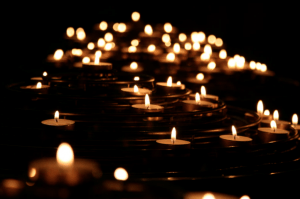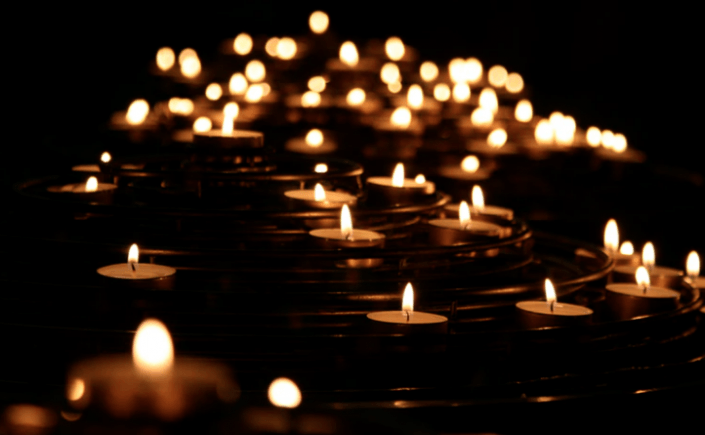by Lois Tverberg
 The main theme of Jesus’ ministry was to preach about the coming of the Kingdom of God, but it is a source of confusion and misunderstanding to many Christians. Is it in heaven after we die? Isn’t God king already?
The main theme of Jesus’ ministry was to preach about the coming of the Kingdom of God, but it is a source of confusion and misunderstanding to many Christians. Is it in heaven after we die? Isn’t God king already?
One thing widely misunderstood is how Jesus spoke about the coming of God’s kingdom in order to proclaim himself as the Messiah, the Christ, God’s anointed king. The primary task of the Messiah, after all, was to establish God’s reign on earth. Dozens of articles are available on this page about Jesus’ Jewish Messianic claims.1
What would the coming of this kingdom look like? An ancient Jewish prayer named Aleinu (Ah-LAY-nu) can shed light on this question. Scholarly sources believe that this beautiful prayer predates Jesus, so that he himself would have prayed it. The name, Aleinu, means, literally, “it is upon us,” which means “we must” or “it is our duty to.”
Even today this prayer is recited at the conclusion of every synagogue service. It is especially prominent on Rosh Hashanah, the New Year, when it is traditional to focus on God’s kingship over the world.
Through the prayer the worshiper exalts God as his or her king, and prays that all the world will repent and do the same. (Note that in the third section, the word for “rule,” malchut, is the same word for kingdom.)
Aleinu
It is our duty to praise the Lord of all.
To acclaim the greatness of the God of creation,
Who has not made us as the nations of the world,
Nor set us up as other peoples of the earth,
Not making our portions as theirs,
Nor our destiny as that of their multitudes.23For we kneel and bow low before the supreme King of Kings,
The Holy One, blessed be He,
Acknowledging that He has stretched forth the heavens
And laid the foundations of the earth.
His glorious abode is in the heavens above,
The domain of His might in exalted heights.
He is our God, there is no other,
In truth our King, there is none else.
Even thus is it written in His Torah:
“This day know and lay it to your heart,
That the Lord is God in the heavens above and on the earth below.
There is none else.”We therefore hope in Thee, Lord our God,
Soon to behold the glory of Thy might
When the world shall be established under the rule of the Almighty,
And all mankind shall invoke Thy glorious name.
May they all accept the rule of Thy dominion,
And speedily do Thou rule over them forever more.4
Here is an excerpt of the last section from another translation that is older and more literal, that talks about the “Yoke of God’s Kingdom.”
“Therefore do we wait for Thee, O Lord our God, soon to behold Thy mighty glory, when Thou wilt remove the abominations from the earth, and idols shalt be exterminated; when the world shall be regenerated by the kingdom of the Almighty, and all the children of flesh invoke Thy name; when all the wicked of the earth shall be turned unto Thee. Then shall all the inhabitants of the world perceive and confess that unto Thee every knee must bend, and every tongue be sworn. Before Thee, O Lord our God, shall they kneel and fall down, and unto Thy glorious name give honor. So will they accept the yoke of Thy kingdom, and Thou shall be King over them speedily forever and aye. For Thine is the kingdom, and to all eternity Thou wilt reign in glory, as it is written in Thy Torah: ‘The Lord shall reign forever and aye.’ And it is also said: ‘And the Lord shall be King over all the earth; on that day the Lord shall be One and His name be One.'”
Christians should be fascinated by how this prayer describes the Kingdom of God being established on the earth, and how it desires that all the nations repent and worship the true God of heaven. It seems to be very much related to Jesus’ words about “the coming of the kingdom of God” and Paul’s sermon in Philippians:
For this reason also, God highly exalted Him, and bestowed on Him the name which is above every name, so that at the name of Jesus every knee shall bow, of those who are in heaven and on earth and under the earth, and that every tongue will confess that Jesus Christ is Lord, to the glory of God the Father. (Phil 2:9-11)
~~~~
 To explore this topic more, see chapter 12, “Jesus and the Torah” in Sitting at the Feet of Rabbi Jesus, Zondervan, 2009, p. 163-179.
To explore this topic more, see chapter 12, “Jesus and the Torah” in Sitting at the Feet of Rabbi Jesus, Zondervan, 2009, p. 163-179.
1 See also, “The Kingdom of Heaven is Good News!” and “Jesus’ Messianic Surprise: A Kingdom of Mercy”
2 In some versions there is a line that says, “for they prostrate themselves before vanity and folly, and pray to a god who can not help.” Ironically, Christians protested since they saw it as said against them, and persecuted Jews for praying this prayer. In many prayer books it has been removed.
3 It is customary to stand for the prayer, and bow while saying this line.
4 From the Siddur, The Traditional Prayerbook for Sabbath and Festivals
Behrman House, 1960
For more information about this prayer see the following:
“Alenu,” a Jewish Enclyclopedia article
This site devoted to the Aleinu
Photo by Mike Labrum on Unsplash


